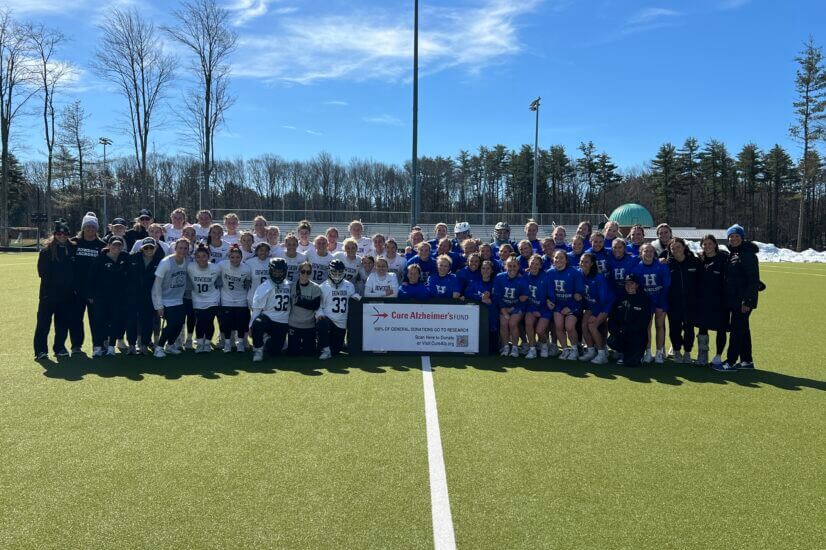
Posted November 22, 2007
The Alzheimer’s Association, Cure Alzheimer’s Fund, and the Lou Ruvo Brain Institute award the Tomorrow’s Leader in Alzheimer’s Disease Research prize, honoring the legacies of two pioneering Alzheimer researchers – George G. Glenner, M.D., and Leon J. Thal, M.D. The award intends to recognize the work of promising M.D. or Ph.D. Alzheimer’s disease investigators who have made pivotal recent contributions to the goal of eliminating Alzheimer’s.
The award is modeled on other genius grants, and as such, the prize may be used for any purpose at the discretion of each awardee. The partners will award three prizes of $100,000 each year based on the quality of the applications.
Glenner (1928–1995) headed the molecular pathology section and chaired the Department of Medicine and Physiology at the Foundation for Advanced Education in the Sciences at the National Institutes of Health from 1958 to 1980. In 1982, he assumed a post as research pathologist in the University of California at San Diego School of Medicine. Two years later, Glenner and his assistant, Cai’ne Wong, announced the isolation and identification of beta-amyloid and its connection with Alzheimer’s. Their watershed research set the cornerstone for the amyloid hypothesis, the leading theoretical framework for understanding Alzheimer’s and the basis of the most promising emerging “disease-modifying” treatments.
Thal (1944–2007), a visionary in conceptualizing and designing Alzheimer clinical studies, led an unparalleled clinical research effort, including some of the trials that established the most important current symptomatic treatments. Since 1994, Thal headed the Alzheimer’s Disease Cooperative Study (ADCS), an 80-site clinical research consortium in the United States and Canada. He also directed the University of California at San Diego’s Shiley-Marcos Alzheimer’s Disease Center, established in 1984 as one of the original five centers funded by the National Institute on Aging. In addition, he chaired UCSD’s Department of Neurosciences.
 The Alzheimer’s Association, Cure Alzheimer’s Fund, and the Lou Ruvo Brain Institute are committed to recognizing outstanding investigators early in their careers to encourage them to stay in the field and help to accelerate the search for effective therapies for Alzheimer’s disease. Each partner has pledged $100,000 per year for a current total of three prizes of $100,000 each per year. The partners invite interest from other organizations willing to participate at the $100,000 level to expand this opportunity in the future.
The Alzheimer’s Association, Cure Alzheimer’s Fund, and the Lou Ruvo Brain Institute are committed to recognizing outstanding investigators early in their careers to encourage them to stay in the field and help to accelerate the search for effective therapies for Alzheimer’s disease. Each partner has pledged $100,000 per year for a current total of three prizes of $100,000 each per year. The partners invite interest from other organizations willing to participate at the $100,000 level to expand this opportunity in the future.
November 1: Qualifying Letter Open Receipt Date
November 30: Qualifying Letter Deadline (5:00 PM, Eastern)
December 7: Notification of Qualification and Open Receipt of Application
January 4: Application Deadline (5:00 PM, Eastern)
February 2008: Award Notification
To avoid disqualification, investigators are encouraged to carefully consider these eligibility requirements before applying.
- attend the announcement of the receipt of the prize
- be available for limited public relations activities related to the Prize
- make a short public presentation of their work and how they used the prize in an appropriate venue approximately one year after receipt of the prize, and
- serve for one year on the selection committee for the next Prize round
The Tomorrow’s Leader Prize Committee and partners do not discriminate on the basis of race, sex, sexual orientation, religion, color, nationality or ethnic origin, age, disability, or status as a Vietnam Era Veteran or disabled veteran, in the selection of the Prize awardees.
The purpose of the Qualifying Letter is to ensure that all applicants are eligible for the competition and meet required criteria. The first step in applying to the Tomorrow’s Leader Award is to submit a Qualifying Letter through the proposalCENTRAL on-line application system. The Tomorrow’s Leader Prize selection process uses proposalCentral as a central clearing house for information from Prize nominees, as do more than 30 other organizations sponsoring grants and awards. Through the proposalCentral website, those submitting Qualifying Letters will find the Tomorrow’s Leaders specific protocol. First time users must register and fill out a Professional Profile in proposalCENTRAL to begin the application process.
The Qualifying Letter and the completed application must be submitted online by the applicant (LIMITED TO ONE PAGE). Hard copies of the Qualifying Letter will not be accepted Qualifying Letters will not be accepted after the deadline date. No exceptions will be made.
Qualifying Letter (not to exceed 1 page) must include:
Once the on-line Qualifying Letter is approved, e-mail notification will be sent granting access to the on-line application at proposalCENTRAL. The online system must be used to submit an application – hardcopies of applications will not be accepted.
The applicant must ensure and to verify that:
All proposals are subject to a two-stage review process carried out with an on-line system. In the first stage, Qualifying Letters are reviewed and rated by three to four peer scientists affiliated with the sponsoring institutions (Tomorrow’s Leader Review Board). Applicants will be notified if their Qualifying Letter has been accepted by the Review Committee for application submission.
The second stage includes review of the full application and discussion of the merit of each applicant. This second review is carried out by the Tomorrow’s Leader in Alzheimer’s Disease Award Review Board, which includes representatives from each of the sponsoring organizations.
This program announcement is posted in full-text and PDF formats on the website of:
The Alzheimer’s Association: www.alz.org
Cure Alzheimer’s Fund: www.curealzfund.org
Lou Ruvo Brain Institute: www.keepmemoryalive.org
For additional information, please contact: [email protected]





